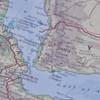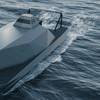Proposed Rule, Non-Tank Vessel Response Plans
The U.S. Coast Guard announced the publication of a notice of proposed rulemaking designed to increase pollution response preparedness for non-tank vessels carrying oil as fuel upon U.S. waters.
The proposed rule, entitled "Nontank Vessel Response Plans and Other Vessel Response Plan Requirements," would establish the content of response plans for oil discharges, helping non-tank vessel owners and operators understand how to comply with preparation and submission requirements for response plans under the Coast Guard Maritime Transportation Act of 2004. A non-tank vessel is defined as a self-propelled vessel of 400 gross tons or greater that is not a tank vessel, which operates on U.S. navigable waters carrying oil of any kind as fuel for main propulsion.
The International Shipboard Oil Pollution Emergency Plan requirements that apply to all non-tank vessels and certain tank vessels would also be updated by the proposed rule. Vessel owners and operators would be required to submit their vessel response plan control number as part of their notice of arrival information.
This proposed rule supports the U.S. Coast Guard's strategic goals of protection of natural resources and maritime mobility. It would also improve the U.S. pollution response, planning and preparedness posture by helping to mitigate environmental damage resulting from non-tank vessel marine casualties.
The U.S. Coast Guard encourages the public to participate in this rulemaking by submitting comments and related materials at http://www.regulations.gov, docket number USCG-2008-1070. All comments received will be posted without change.











